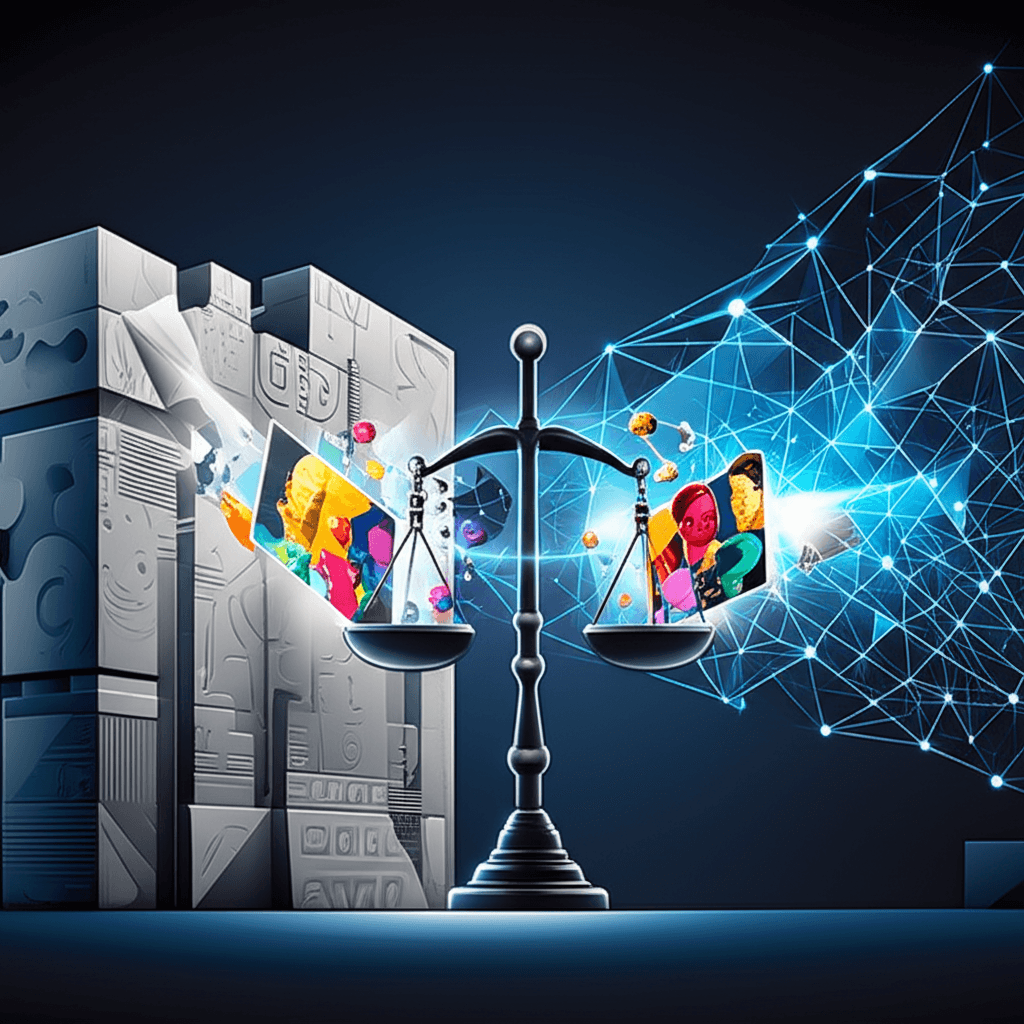Hollywood Strikes First: Disney, Universal Sue Midjourney Over AI Copyright
Hollywood giants sue AI image generator Midjourney, alleging 'plagiarism' of beloved characters and sparking a defining copyright battle.
June 11, 2025

The world of generative artificial intelligence is facing a significant legal challenge as entertainment giants Disney and Universal have reportedly filed a joint lawsuit against AI image generator Midjourney.[1][2][3][4][5][6][7][8] The core of the lawsuit, filed in the United States District Court in Los Angeles, revolves around allegations of copyright infringement, with the studios claiming Midjourney unlawfully used their vast libraries of copyrighted characters to train its AI model and that the platform facilitates the creation and distribution of unauthorized images of these iconic figures.[1][2][9][3][4][5][7][8] This legal action marks the first time major Hollywood studios have entered the fray against AI companies concerning intellectual property rights, a move that is being closely watched by both the entertainment and technology industries.[1][9][4][5][6][7][8]
The 110-page complaint describes Midjourney as a "quintessential copyright free-rider and a bottomless pit of plagiarism," accusing the San Francisco-based AI company of profiting from their creative assets without permission or compensation.[1][2][9][3][5] Disney and Universal assert that Midjourney "helped itself to countless" copyrighted works to train its software, which then allows users to generate images—and potentially soon, videos—that "blatantly incorporate and copy Disney's and Universal's famous characters."[1][2] Examples cited include well-known characters such as Darth Vader from Star Wars, Elsa from Frozen, the Minions from Despicable Me, Shrek, and figures from The Simpsons and Marvel.[1][2][3] The lawsuit alleges that Midjourney's actions are "calculated and willful," claiming the AI company ignored prior requests to cease the infringing activities and to implement technological safeguards.[9][3][4][5][10] Instead, the studios argue, Midjourney continued to release newer versions of its AI service that produce even higher quality infringing images.[3][5] The entertainment companies are seeking maximum statutory damages, potentially up to $150,000 per infringed work, and an injunction to stop Midjourney from further copyright infringement.[9][10][11]
This lawsuit by Disney and Universal is not the first legal challenge Midjourney has faced. The AI company, along with Stability AI and DeviantArt, is already embroiled in a class-action lawsuit filed in January 2023 by visual artists like Sarah Andersen, Kelly McKernan, and Karla Ortiz.[12][13][14][15] These artists allege that the AI companies unlawfully used their artwork, registered with the U.S. Copyright Office, as training data for their image generators without consent, credit, or compensation.[12][13] That lawsuit, also in the Northern District of California, argues that the AI-generated images are derivative works that compete unfairly with the original artists' creations.[12][14] While some claims in the artists' lawsuit were initially dismissed, a judge has allowed direct and induced copyright infringement claims to proceed, moving the case towards the discovery phase where more details about the AI companies' data collection practices may be revealed.[13][16][17][18][19] Specifically, the artists plausibly argued that "compressed copies" of their work are stored and reproduced by the AI models.[17][18] These ongoing cases highlight a fundamental conflict between AI developers, who often argue their use of publicly available data falls under "fair use," and creators who see it as unauthorized exploitation of their intellectual property.[20][4][6]
The implications of these lawsuits extend far beyond the specific companies involved, touching upon the foundational principles of copyright law and the future of creative industries in an era of rapidly advancing AI.[21][22][23][24] A central question is whether training AI models on copyrighted material constitutes infringement and whether the output of these models, which can mimic the style of known artists or replicate trademarked characters, can be considered transformative fair use or infringing derivative works.[12][23] Current U.S. copyright law generally grants protection only to "works of human authorship," leaving a legal gray area for AI-generated content.[21][22][24] The U.S. Copyright Office has stated that AI-generated content lacking human authorship is not copyrightable.[22] Tech companies often argue that their AI systems transform existing works into something new, but creators contend this "transformation" still relies on and devalues their original efforts.[20][23] The outcomes of these legal battles could set significant precedents, potentially forcing AI companies to re-evaluate their training data practices, implement stricter safeguards against the generation of copyrighted or trademarked material, and explore licensing agreements with rights holders.[25][19] Some AI developers have already begun to strike deals with content owners, such as recent agreements between OpenAI and news publishers like Axel Springer.[25]
The broader AI industry is watching these developments closely. Midjourney, founded in 2021 by David Holz, reportedly generated $300 million in revenue in 2024 from paid subscriptions.[3][5] Holz has previously stated that the company performed "a big scrape of the internet" to build its database and acknowledged the difficulty in knowing the provenance of all training images.[3][5] The success of companies like Midjourney and Stability AI, whose Stable Diffusion model is also a subject of litigation, has been built on the ability to train their models on vast datasets of images and text, often scraped from the internet.[16][19] The legal challenges they now face, particularly from well-resourced entities like Disney and Universal, could significantly impact their business models and the wider generative AI landscape.[1][2][9] As Disney's general counsel, Horacio Gutierrez, stated, "Piracy is piracy, and the fact that it's done by an AI company does not make it any less infringing."[1][2] This sentiment underscores the determination of major IP holders to protect their valuable assets and could signal a wave of similar actions if these initial lawsuits prove successful, forcing a broader reckoning within the AI industry regarding the ethical and legal use of data.
Sources
[2]
[6]
[8]
[10]
[11]
[12]
[14]
[15]
[16]
[18]
[19]
[20]
[21]
[22]
[23]
[24]